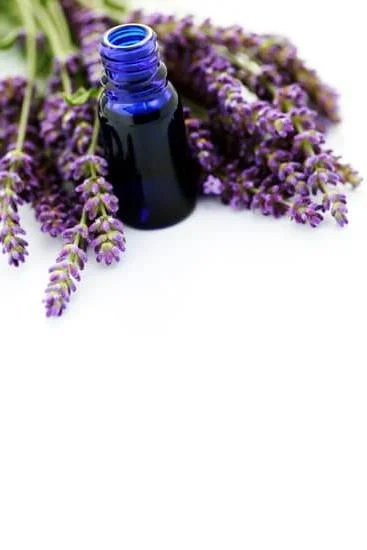Have you ever wondered if there’s a natural, holistic way to combat the symptoms of the common cold? Aromatherapy for colds may be just the solution you’ve been searching for. This article will explore how essential oils can be used to alleviate congestion, ease discomfort, and boost immunity during the cold season.
The common cold is characterized by a variety of symptoms, including nasal congestion, sore throat, coughing, and fatigue. In this section, we will delve into the specific causes and effects of the cold virus on the body. Understanding these symptoms and causes is crucial in finding effective ways to manage and alleviate them using aromatherapy techniques.
We will also discuss how essential oils can play a role in combating these symptoms. Essential oils have long been used for their therapeutic properties and have gained popularity in recent years as a natural remedy for various ailments.
We will explore the science behind aromatherapy and how certain essential oils can effectively ease the discomforts caused by colds. Whether it’s through diffusion, steam inhalation, or topical application, essential oils offer a natural alternative to traditional over-the-counter remedies for cold relief.
The Science of Aromatherapy
The use of essential oils in aromatherapy for colds has been gaining popularity as a natural remedy for alleviating symptoms and boosting the immune system. The science behind aromatherapy lies in the ability of certain essential oils to have antimicrobial, antiviral, and anti-inflammatory properties. These properties can help combat the viruses and bacteria that cause colds, as well as provide relief from congestion, coughing, and other discomforts associated with the common cold.
Essential oils are highly concentrated plant extracts that capture the plant’s scent and flavor, or “essence.” When these oils are inhaled or applied to the skin, they can trigger physiological responses in the body. For example, inhaling eucalyptus oil can help open up the airways and promote easier breathing, while lavender oil has calming and soothing effects that can aid in relaxation and sleep. These therapeutic benefits make essential oils a valuable tool in managing cold symptoms.
Several essential oils have been identified as particularly effective for easing cold symptoms. Eucalyptus oil is known for its decongestant properties and is often used to clear nasal passages and relieve sinus pressure. Peppermint oil is another popular choice for its cooling sensation that can alleviate headaches and muscle aches commonly associated with colds.
Additionally, tea tree oil has antiviral and antibacterial properties that can help fight off infections. By understanding the specific benefits of each essential oil, individuals can tailor their aromatherapy approach to address their unique cold symptoms.
| Essential Oil | Benefits |
|---|---|
| Eucalyptus oil | Decongestant properties; clears nasal passages |
| Peppermint oil | Cooling sensation; alleviates headaches and muscle aches |
| Tea tree oil | Antiviral and antibacterial properties; fights off infections |
Best Essential Oils for Colds
When it comes to finding relief from the symptoms of a cold, essential oils can be a powerful tool. Certain essential oils have properties that can help alleviate congestion, soothe sore throats, and boost the immune system. Here are some of the best essential oils for colds:
Peppermint Oil
Peppermint oil is known for its ability to clear nasal passages and reduce coughing. Its cooling sensation can also provide relief for headaches and sinus pressure.
Eucalyptus Oil
Eucalyptus oil has decongestant and expectorant properties, making it effective for clearing the airways and promoting easier breathing. It can also help reduce inflammation in the respiratory system.
Tea Tree Oil
Tea tree oil has antimicrobial and immune-boosting properties, which can help fight off the germs that cause colds. It also has a soothing effect on irritated throat tissues.
Lavender Oil
Lavender oil is renowned for its calming and relaxing effects. When dealing with a cold, it can help relieve stress and promote better sleep, allowing the body to focus on fighting off the illness.
Lemon Oil
Lemon oil is high in vitamin C and has antiviral properties, making it an ideal choice for boosting the immune system during a cold. It also has an uplifting scent that can improve mood and energy levels.
Knowing which essential oils to use for specific cold symptoms can make a significant difference in how effectively aromatherapy can provide relief. Whether used individually or in combination, these essential oils are valuable tools for easing discomfort during a bout of the common cold.
Aromatherapy Techniques
When it comes to alleviating cold symptoms, aromatherapy techniques can offer a natural and effective solution. There are various methods for using essential oils to combat the discomfort associated with the common cold, including diffusers, steam inhalation, and topical application.
Diffusers
Using a diffuser is one of the most popular ways to enjoy the benefits of aromatherapy for colds. This method involves dispersing essential oils into the air, allowing you to inhale the soothing scent. Diffusers come in different varieties, such as ultrasonic, nebulizing, and heat-based. Each type offers its own unique way of spreading essential oil particles throughout a room, providing respiratory relief and promoting relaxation.
Steam Inhalation
Steam inhalation is another effective way to utilize aromatherapy for colds. By adding a few drops of essential oil into a bowl of hot water and inhaling the steam, you can experience relief from nasal congestion and sinus pressure. This method helps open up airways and clear mucus, making it easier to breathe while also providing antiviral properties that can help combat the underlying cause of your cold.
Topical Application
Applying essential oils directly to the skin is yet another way to harness their healing properties during a cold. When diluted with a carrier oil like coconut or jojoba oil, essential oils can be massaged onto the chest, throat, or wrists for fast-acting relief. They can also be added to baths or used in compresses to target specific areas of discomfort related to cold symptoms such as muscle aches or headaches.
By learning how to properly use these aromatherapy techniques at home, you can effectively combat your cold symptoms and promote overall wellness using natural remedies.
DIY Aromatherapy Blends
Creating your own custom essential oil blends can be a simple and effective way to relieve congestion and boost immunity when dealing with a cold. By combining the right essential oils, you can create a potent remedy to alleviate symptoms and promote faster recovery.
To relieve congestion, eucalyptus and peppermint essential oils are excellent choices. Eucalyptus oil has decongestant properties that can help clear the sinuses, while peppermint oil has a cooling effect that can provide relief from nasal congestion. Combining these two oils in equal parts and diluting them with a carrier oil such as coconut or almond oil can create a powerful blend for relieving congestion.
In addition to addressing congestion, it’s also important to boost the immune system to help the body fight off the cold virus. Tea tree oil and lavender oil are known for their immune-boosting properties. Tea tree oil has antimicrobial effects, while lavender oil is known for its soothing and calming effects on the body. Mixing these oils together with a carrier oil can create an effective blend for boosting immunity and promoting overall wellness.
When creating DIY aromatherapy blends, it’s important to use high-quality, pure essential oils and to properly dilute them with a carrier oil to avoid skin irritation or other adverse reactions. By following these simple steps, you can harness the power of aromatherapy for colds and experience natural relief from uncomfortable symptoms.
| Essential Oils | Benefits |
|---|---|
| Eucalyptus | Decongestant properties |
| Peppermint | Cooling effect for nasal congestion |
| Tea tree | Antimicrobial effects for boosting immunity |
| Lavender | Soothing and calming effects on the body |
Safety Precautions
When using aromatherapy for colds, it’s important to keep in mind safety precautions, especially when using essential oils around children and pregnant women. Essential oils are highly concentrated and potent substances that can have adverse effects if not used properly. Here are some important guidelines to follow when using essential oils for cold relief:
- Dilution: Essential oils should always be diluted before applying them to the skin, especially for children and pregnant women. A safe dilution ratio is typically 1% to 2% for children and 1% to 3% for pregnant women.
- Inhalation: When using essential oils for inhalation, make sure to use a proper diffusion method such as a diffuser or steam inhalation. Always follow the manufacturer’s instructions for the specific diffuser being used.
- Patch Testing: Before applying any essential oil topically, perform a patch test on a small area of skin to check for any allergic reactions or sensitivities.
It’s important to note that not all essential oils are safe for use during pregnancy or around young children. Some essential oils can cause uterine contractions or may be too strong for sensitive respiratory systems.
It is always best to consult with a qualified aromatherapist or healthcare professional before using essential oils in these situations. Proper usage and understanding of safety precautions will ensure that aromatherapy can be safely utilized as a natural remedy for cold relief without any adverse effects on health.
Aromatherapy Lifestyle
Aromatherapy for colds involves more than just treating symptoms when they appear. Incorporating aromatherapy into your daily routine can help prevent colds and alleviate symptoms before they become overwhelming. By using essential oils regularly, you can boost your immunity and create a healthier environment for yourself and those around you.
Here are some ways to incorporate aromatherapy into your daily routine:
1. Diffuse essential oils: Invest in a high-quality diffuser to spread the scent of essential oils throughout your home or office. Diffusing oils like eucalyptus, peppermint, and tea tree can help cleanse the air and kill germs, reducing the risk of catching a cold.
2. Topical application: Add a few drops of immune-boosting essential oils such as lemon, lavender, or frankincense to carrier oil, then apply it to pulse points or the soles of your feet to support overall wellness.
3. Use aromatherapy in cleaning products: Add antimicrobial essential oils like lemon or thyme to natural cleaning solutions to sanitize surfaces and promote a healthier living environment.
By integrating these simple practices into your daily life, you can harness the power of aromatherapy for cold prevention and symptom relief. Taking a proactive approach to wellness through natural means can lead to better health outcomes in the long run.
Aromatherapy for Cold Prevention
In conclusion, the use of aromatherapy for colds can be a natural and effective way to alleviate symptoms and prevent getting sick in the first place. Understanding the science behind aromatherapy and its ability to combat cold symptoms is the first step in taking advantage of its benefits. By incorporating essential oils into your daily routine, whether it’s through diffusers, steam inhalation, or topical application, you can proactively strengthen your immune system and ward off colds.
The best essential oils for colds include eucalyptus, peppermint, tea tree, and lavender. These oils have properties that can help relieve congestion and boost immunity. With the right blend of essential oils, you can create a custom remedy to ease cold symptoms.
While using essential oils for cold prevention can be beneficial, it’s important to take safety precautions. Always follow guidelines for proper usage, especially when using them on children or around pregnant women. By being informed and careful with your use of essential oils, you can enjoy the benefits without any adverse effects. Overall, incorporating aromatherapy into your lifestyle can not only alleviate cold symptoms but also help in preventing future illnesses.
Frequently Asked Questions
What Aromatherapy Is Good for Colds?
Aromatherapy can be helpful for colds by using essential oils like eucalyptus, peppermint, and tea tree oil. These oils can help clear congestion, reduce inflammation, and provide relief from cold symptoms.
What Essential Oils Are Good for a Cold in a Humidifier?
When using a humidifier for a cold, essential oils like eucalyptus, peppermint, and lavender can be beneficial. These oils can help open up the airways, soothe coughs, and provide relief from nasal congestion when diffused in the humidifier.
What Essential Oil Is Good for Congestion?
Eucalyptus essential oil is known for its decongestant properties and is a popular choice for relieving congestion caused by colds. It can help break up mucus and phlegm, making it easier to breathe and providing some relief from congestion during illness.

Are you looking for a natural way to improve your health and wellbeing?
If so, aromatherapy may be the answer for you.





